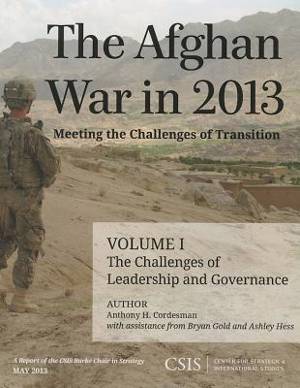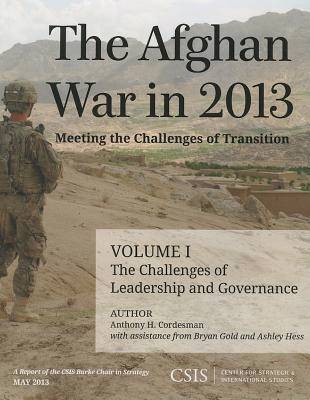
- Retrait gratuit dans votre magasin Club
- 7.000.000 titres dans notre catalogue
- Payer en toute sécurité
- Toujours un magasin près de chez vous
- Retrait gratuit dans votre magasin Club
- 7.000.0000 titres dans notre catalogue
- Payer en toute sécurité
- Toujours un magasin près de chez vous
The Afghan War in 2013: Meeting the Challenges of Transition
The Challenges of Leadership and Governance
Anthony H Cordesman, Bryan Gold, Ashley Hess
105,45 €
+ 210 points
Format
Description
After more than a decade of fighting in Afghanistan, the United States and its allies are set to transfer security responsibilities to Afghan forces in 2014. This transition poses many challenges, and much will depend on the future of Afghan politics, governance, corruption, development, security, and economics. How the United States manages the transition is vital for any hopes of creating a secure Afghanistan, as well as preventing the reemergence of the Taliban and other terrorist groups. The Afghan War in 2013 honestly assesses the benefits, costs, and risks involved in transition. It is essential reading for an in-depth understanding of the complex forces and intricacies of the United States' role in Afghanistan and the difficulties involved in creating a stable Afghanistan in 2014 and beyond. Afghanistan is still at war and will probably be at war long after 2014. At the same time, the coming cuts in the International Security Assistance Force (ISAF) and cuts in military and civil aid, along with the country's fractious politics and insecurity, will interact with a wide range of additional factors that threaten to derail the transition. These factors, examined in this three-volume study, highlight the need to make the internal political, governmental, economic, and security dimensions of the transition as effective as possible. This will require a new degree of realism about what the Afghans can and cannot accomplish, about the best approaches to shaping the Afghan National Security Forces (ANSF), and the need for better planned and managed outside aid.
Spécifications
Parties prenantes
- Auteur(s) :
- Editeur:
Contenu
- Nombre de pages :
- 56
- Langue:
- Anglais
- Collection :
- Tome:
- n° 1
Caractéristiques
- EAN:
- 9781442224971
- Date de parution :
- 28-05-13
- Format:
- Livre broché
- Format numérique:
- Trade paperback (VS)
- Dimensions :
- 211 mm x 274 mm
- Poids :
- 199 g

Les avis
Nous publions uniquement les avis qui respectent les conditions requises. Consultez nos conditions pour les avis.






